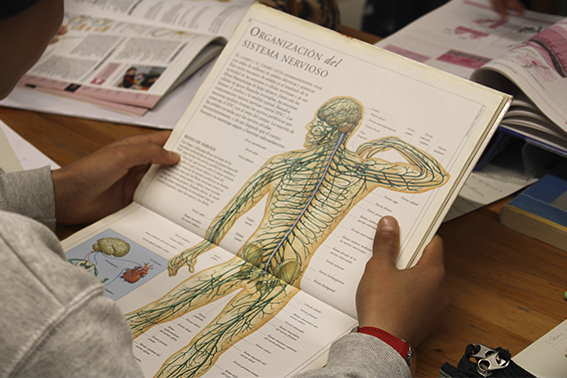The 2nd and 3rd year secondary school (ESO) group has immersed themselves for four weeks in a Biology learning period.
Through daily reading of the book “The Secret Life of Trees” by Wohlleben, we have been able to discover the hidden world of trees: what they feel, what they communicate.
We have also given life to the study of human biology from the mechanism to the organism, investigating through questions about the eyes and sight, hearing and listening, the sense of balance, the sense of touch, taste and smell, the sense of movement, the larynx and speech, the human skeleton and the nervous system. Why do we see the sky blue? What organ is involved in the vision of ambiguous figures? What is the path of sound? What helps us maintain balance? What is pain? What is touch? How are taste and smell related? Do you know why you can move without thinking about what to do at any given moment? How is the sound of the voice generated? How many types of bones does our skeleton have? What is the arch of our feet used for? Why does the column have a wavy shape? How does the brain develop from birth? and a long etc.
Various sources have accompanied the path of research, study and learning: books, articles, drawings, a skeleton and a torso, but above all the desire to learn to learn.
Every week different groups of students have presented their micro-research projects and answered their classmates’ questions.
On Thursdays we have held debates on science and society topics, in order to develop skills such as
argumentation, critical thinking or decision making, active listening, oratory and oral expression:
Is it possible that Artificial Intelligence will end humanity?
Do human beings behave like a parasite on Earth?
Are GMOs our salvation or our downfall?
On February 2 we close the period with an oral presentation of the personal research project that each one has chosen within the field of Biology. Some of the projects will reveal to us: What is Nature’s secret number? How dolphins sing? What are reflections? What does microbiology study? Why, if we theoretically come from monkeys, do monkeys not become human beings over time?
“Knowledge takes up no place.” Aristotle.


